Audio Version Of The Blog – 4/16/21
Listen to an Audio Version of the Blog
Download:MP3 Audio

Listen to an Audio Version of the Blog
Download:MP3 Audio
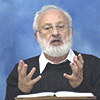 Day by day we study and clarify the path that we must go through from the exodus of Egypt to the very end of correction, that is, the revelation of the entire program of development.
Day by day we study and clarify the path that we must go through from the exodus of Egypt to the very end of correction, that is, the revelation of the entire program of development.
When we manage to rise above our egoistic desire called Pharaoh and stop depending on it, by restricting our egoism, this will mean that we are exiting Egypt, reception for our own sake, and entering a new, spiritual state.
The spiritual world, which is absolutely unknown to us, will open before us, then how can we understand where we are? Therefore, the exodus from Egypt is followed by a period called the Omer Count—when we count the desires revealed in us in our connection with the group and tie them into a sheaf (Omer) like stalks of wheat.
We collect the desires that are revealed in us and attach them to this sheaf. Their correction is precisely in the fact that we bundle them together. When all the desires of the group are gathered into one, this structure becomes ready to receive the upper light. This means that we have been rewarded with the giving of the Torah and have come to the next station called Shavuot (end of the counting of seven weeks).
The upper light is revealed within our connection because we have become similar to the light: the Creator is revealed to the created beings in the state called “standing before Mount Sinai.”
Each ten connects within itself, then tens connect together into one single whole, and become similar to the light, and the light is revealed in us. This is the condition for receiving the Torah, receiving the upper light.
The entire work is in changing our intention in order not to think about ourselves, about our own benefit, but to think about the Creator, about His benefit. And we can think about the benefit of the Creator only under the condition that we are connected, because the Creator is revealed only within our connection. If we really want to give Him contentment, we must connect with our friends and thus allow the Creator to be revealed in us.
The whole pleasure of the Creator is to be revealed to the created beings and to feel how they enjoy His revelation. It is like a mother whose entire happiness is to see her children healthy and happy.
The only way to bring contentment to the Creator is to give Him the opportunity to fulfill and delight us. This is how we become equivalent: I delight the Creator by my delight in Him.
[280933]
From the Daily Kabbalah Lesson 4/13/21, “Counting of the Omer (Sefirat HaOmer)“
Related Material:
A Person’s Essential Work
Are We Slaves?
Escape From Egyptian Darkness
My new article on Linkedin “Is Less In Our Lives More?”
The trend of minimalism is transforming societies globally. More and more people are deciding to detach from their material possessions or to avoid acquiring stuff in excess, to escape the stress of the Western life, and to live in a much more relaxed style with only those things considered really indispensable. Where does this come from? And is this the secret of happiness?
Simplicity is the trend applicable to basically any area of our existence and it is becoming more appealing. Despite what we may think, this phenomenon is not new, it existed in ancient cultures. There were times when people chose to live modestly, even though they could afford a great deal. The tendency towards minimalism stems from the fact that everything we acquire controls us. As our sages said long ago, “the more possessions the more worry.”
A meaningful life depends on one’s attitude not on matter, on material things. So if we develop good mutual relationships, we will all be filled with joy and no one will lack anything. We will discover that the secret of life truly lies in the right human connections and the fulfillment that can be achieved through it is boundless.
For instance, when people purchase lavish properties they get the feeling that they expand their control, but they become slaves to those acquisitions. In the same way, people get addicted to their new cars, new phones, new clothes, prestigious brands, symbols of status. Trapped by Black Friday, Cyber Monday, end of the season, buy one get one, in short, they become enslaved by consumerism.
However, at a certain point they get tired, feel empty, and reach “enough! A beautiful apartment in a marble-clad tower with an opulent design? Living in nature is much more exciting. One sweatshirt to change into is enough when there is no washing machine. Freedom from stress is the biggest asset in the world!”
Really? Is it enough for us to get rid of our belongings and assets to be happy in the long run? The answer is no. Why? Because in all of the above there is not yet the qualitative development for which man was created. Accumulation of assets and objects or getting rid of them for personal convenience is in both cases a manifestation of selfish thinking: What will be better and more comfortable for me? And as long as the direction of thought is about myself, whatever I do will not make me feel the plenitude that can be achieved in life.
Only a fundamental change in the direction of our thoughts, from a natural thought of self-good to a thought about the good of others can be considered a new development in our evolution as human beings.
Such a change will result from a deep inquiry: What is worth living for? Is there anything that can be acquired during this life that will always stay with me? Then clearly the fulfilling answer cannot be material property but something more meaningful and enduring.
A special sensitivity is developed in us when we invest in others. We gradually reach a state where we really want to bestow upon our neighbors. We find that the love and good treatment we give to everyone fills us with more satisfaction than anything else. It is an attainment that will not go away and no one can take it from us.
In our evolution as a human species, we have reached a state where we must be interconnected in a reciprocal way. We currently live in dissonance with the connected world we have created; we think only about ourselves and this is totally unsustainable. Our safe future depends on building a new society where people will treat each other and the environment well, a society where no one will be disrespected, where we will think together about how to provide each person with what everyone needs to live well, without producing unnecessary things endlessly that pollute the environment and destroy our common home, the planet, and us included.
The method of enjoyment for a person in the future will be upgraded. Now we strive to accumulate more and more stuff to feel satisfied, to be above everyone else so others will envy us, but it also puts us under constant pressure from fear that any moment someone will surpass us. When we realize this is a futile quest, we will learn to enjoy doing good to those around us and this will uplift both us and them; it will create a pleasant and satisfying atmosphere.
Therefore, lasting fulfillment is not related to the amount of objects or assets in our possession. So we will not need to purchase material objects to find pleasure or to make someone happy. We will see that the greatest gift anyone can give or receive is first of all warmth, a smile and genuine, sincere concern. A meaningful life depends on one’s attitude not on matter, on material things. So if we develop good mutual relationships, we will all be filled with joy and no one will lack anything. We will discover that the secret of life truly lies in the right human connections and the fulfillment that can be achieved through it is boundless.
[281015]
 Michael Laitman, On Quora: “For the purpose of people unity, what are the proven methods throughout history?“
Michael Laitman, On Quora: “For the purpose of people unity, what are the proven methods throughout history?“
The wisdom of Kabbalah is a time-tested method of unity, which was first implemented to unite people above their differences and disputes in the time of ancient Babylon, some 4,000 years ago.
It acts on the premise that we people are by nature in a broken and divided state, and when we start bringing ourselves together in order to connect, we discover the impossibility of connecting positively without the guidance of a method.
The reason we cannot connect positively is because we are egoistic by nature, instinctively prioritizing self-benefit over benefiting others, and the latter tendency needs to be higher in priority if we are to positively connect.
The wisdom of Kabbalah is a method that explains first and foremost not to move in a direction that opposes another person’s opinion, but how to make a sandwich, so to speak, of forces of separation (our egoistic nature) and forces of connection, which we draw through study. It is written about such a sandwich that “Love will cover all crimes.” That is, we understand that due to our egoistic nature, we are divided, that we endlessly criticize each other, and feel varying degrees of rejection to one another, from indifference to hatred. However, we pay no attention to this natural rejection we feel toward each other.
Instead, the wisdom of Kabbalah provides a method for how to concentrate ourselves on uniting above the ego. All of our differences remain, and we focus on connecting positively to each other above the differences. We maintain the differences and build a second level upon them.
Moreover, the wisdom of Kabbalah states that humanity is going to reach a level where everyone will unite above their divisions, however for the time being, only a small critical mass of people will be drawn to such a wisdom in order to implement unity above their differences. Through this critical mass realizing this method on themselves, their unity will start acting throughout humanity. In other words, the current period involves a group of people applying the method of unity on themselves similar to how a small group of scientists perform several experiments in a lab with the goal of discovering a new technology to improve human life in a certain way. Once they discover it, then it becomes patented and released on a mass scale, and humanity receives the ability to use it with a few simple instructions.
Based on New Life episode 1145, “The Image of the People of Israel,” with Kabbalist Dr. Michael Laitman and Oren Levi. Written/edited by students of Kabbalist Dr. Michael Laitman.
My new article on Linkedin “Churchill and the Jews – A Matter of Fate”
A hundred years ago, on March 24, 1921, to be exact, an important visitor came to Palestine to witness firsthand the progress of the Zionist endeavor to build “A national home for the Jewish people,” as stated in the 1917 Balfour Declaration. That man was Winston Spencer Churchill, at the time Great Britain’s Secretary of State for the Colonies, and during World War II, its illustrious Prime Minister. The 1920 San Remo conference gave Britain the mandate for the administration of Palestine, and Churchill, an avid supporter of Zionism, came to see how his vision was unfolding.
Churchill seems to have realized that for the Jews, unity had a deep spiritual meaning, and not merely a worldly benefit to yield. Gilbert writes that Churchill “did not think that people could unite in communities ‘unless they possessed some guiding principle. They in that part of Manchester had the spirit of their race and of their faith. He counselled them to guard and keep that spirit. It was a precious thing, a bond of union, an inspiration, and a source of great strength.’”
In light of the Palestinian Arabs’ resistance to the Jewish settlers, Churchill declared: “It is manifestly right that the Jews should have a National Home where some of them may be reunited. And where else could that be but in this land of Palestine, with which for more than 3,000 years they have been intimately and profoundly associated.”
Acclaimed British historian Martin Gilbert, author of the book Churchill and the Jews, included numerous quotations by Churchill. In one of them, he writes that an Arab delegation protested the expansion of the Jewish settlement in Palestine. In response, Churchill told them, “I am myself perfectly convinced that the cause of Zionism is one which carries with it much that is good for the whole world, and not only for the Jewish people, but that it will also bring with it prosperity and contentment and advancement to the Arab population of this country.”
Indeed, Churchill’s interest in the success of the Jewish National Home went deeper than a sense of historic justice. His passion for Zionism stemmed from his sense of the Jewish fate with regard to the whole world. In Palestine, which is now the State of Israel, Churchill felt that the Jews could realize their vocation. Accordingly, during his visit, he said, “My heart is full of sympathy for Zionism. The establishment of a Jewish National Home in Palestine will be a blessing to the whole world.”
An even more surprising nuance about Churchill’s affinity for Jews had to do with his discernments about the nature of the Jewish society. I have written countless times about the significance of unity for the Jews. Throughout the ages, our sages have stressed numerous times that unity is the core of Judaism, that the people of Israel were forged only after they agreed to unite “as one man with one heart,” and that the example of unity is what the world wants to see from them.
Regrettably, for all their efforts, our sages did not convince their obstinate people; perhaps a distinguished member of the nations expressing precisely the same view will help us come to terms with our vocation. Churchill was not always aware of the importance of unity for the Jews, or as he referred to it, their “corporate spirit.” But some years before World War I, he got to know the Jews of Manchester. According to Gilbert, “His experience with Manchester Jewry had introduced him to the Jewish communal emphasis on social responsibility and self-help, with which he had been much impressed. … Churchill added that he had been ‘much struck … by the nature of the work that community had in hand.’”
Moreover, Churchill seems to have realized that for the Jews, unity had a deep spiritual meaning, and not merely a worldly benefit to yield. Gilbert writes that Churchill “did not think that people could unite in communities ‘unless they possessed some guiding principle. They in that part of Manchester had the spirit of their race and of their faith. He counselled them to guard and keep that spirit. It was a precious thing, a bond of union, an inspiration, and a source of great strength.’”
During a meeting in support of the Jewish Hospital Fund in Manchester, Churchill said that recently, we have heard a great deal about corporate life, but “If we were going to live decent lives in such great masses of people, we would have to study the corporate organization of society in a way we had hitherto not attempted to do. We had got to band ourselves together for definite purposes.” In Churchill’s eyes, the corporate life “was worth nothing unless it had behind it personal effort. The mere mechanical arrangement of society into larger combination would be utterly sterile unless those larger combinations were sustained by a great spirit of personal interest and of impersonal aspiration.” He was convinced that if the Jews could keep that spirit, “They would have created a new thing in the world; they would have brought from the realms of the infinite something new into the arena of mundane affairs.” In fact, Churchill was so convinced of the power of Jewish unity that he stated that it would be “a lever which could remove vice, disease, sorrow and want, which could wipe away the grossnesses of our state in the world, and which would be of far greater value than any stereotyped or hidebound official organization.”
Moreover, Churchill realized that worldly Jewish unity could be successful only if it were tied to the spiritual essence of Jewish unity. It seems as though in his eyes, that unity made them “a light unto nations,” an example to follow. In his words, “If we were to have the higher corporate life, we must have the higher corporate incentive; we must have the larger spirit, the larger driving power. The Jews were a lucky community because they had that corporate spirit, the spirit of their race and faith.” Churchill would not “ask them to use that spirit in any narrow or clannish sense.” He believed it would be “far from their mood and intention, far from the counsels that were given them by those most entitled to advise. That personal and special driving power which they possessed would enable them to bring vitality into their institutions, which nothing else would ever give.”
At the end of his speech about the corporate nature of the Jewish spirit, Churchill concluded with a humorous, if stern advice: “Be good Jews.” And perhaps to show his appreciation for Jewish unity and desire that the Jews would share it, he added, amid cheers: “A Jew cannot be a good Englishman unless he is a good Jew.”
It is my wish for the people of Israel to take the advice of our sages, to listen to the wishes of the nations, and forge the unity that we must then share with the world. Our unity, above all our many differences, shines a light that the whole world wants. If we spread this light, the world will embrace our nation for the first time in our history.
[281088]
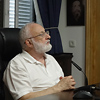 Question: Each of us has a unique set of qualities. How can I know what they are? How can I find my purpose in the spiritual and in the corporeal world?
Question: Each of us has a unique set of qualities. How can I know what they are? How can I find my purpose in the spiritual and in the corporeal world?
Answer: In the corporeal world, everything depends on the specific circumstances. And in the spiritual, while we develop we begin to feel, define, and learn about ourselves as we grow.
Thus, we discover who we are down to the root of our soul, what set of spiritual qualities lies at its core. And so it is with each of us. To the extent that you develop your soul, you begin to feel it, understand what it’s like.
In other words, to the extent that you are able to align yourself with the Creator, you begin to feel the point of your origin and at the same time your destination, the path that you are going through and will have to go through in the future. All this happens in the course of implementing the Kabbalistic practice.
[280519]
From KabTV’s “Integral Course” 3/19/21
Related Material:
A Person’s Purpose
How Do You Find Your Destiny?
How To Fulfill Your Mission
 Comment: The Red Sea (Yam Suf – Final Sea) is torn by the power of man’s faith when Moses raises his staff. “Staff” in Hebrew is “Mahteh” from the word “Mata” meaning below.
Comment: The Red Sea (Yam Suf – Final Sea) is torn by the power of man’s faith when Moses raises his staff. “Staff” in Hebrew is “Mahteh” from the word “Mata” meaning below.
My Response: A person lowers his egoism and thus passes through all the obstacles. He is guided not by reason and logic, but by that he wants to bestow.
However, this is completely unrealistic for him, because bestowal, love, and connection with others are above the property of reception, personal gain, and personal salvation. This is what Nachshon’s leap into the mighty waves of the Red Sea personifies.
Question: Why is it that Nachshon (the property in man) jumps into the sea and not Moses? Usually the leader goes first.
Answer: The point is that Moses is above the property of Nachshon. Moses is a property of Bina, and therefore, it is not at all a problem for him to be in the property of bestowal and love. This is all that he is guided by when he leads the children of Israel (desires), gradually frees them from egoism, and leads them to love among themselves.
Question: What is this miracle that a person suddenly is given such an opportunity to think and care about others more than about himself? After all, in principle, this is unnatural and does not bring any reward.
Answer: It is a transition to a completely different basis of existence, when bestowal, love, and a good attitude toward others are above one’s attitude toward oneself. A person enters this state almost forever. If earlier he lived in his usual egoism, only “for his own sake,” then, after crossing this border, he begins to live only “for the sake of others.”
Question: Does a person’s worldview, his approach to life change?
Answer: Absolutely in everything. Outside the border of Egypt, our attitude toward the world completely changes. There is no longer consideration of oneself. You constantly consider others, take them into consideration. You know with certainty that whatever arises inside you must be inverted into bestowal and love.
Question: But what motivates a person? Why does he act like this?
Answer: Because this is the Creator’s property. And he wants to be closer to Him.
Question: And if it had not been the Creator’s property, then he would not have made such actions?
Answer: No. Then there would have been no reason. This is the only reason.
[280766]
From KabTV’s “Spiritual States” 4/2/21
Related Material:
In Front Of The Raging Sea
Property Which Parted The Sea
The Leap Into The “Red Sea”
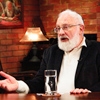 Comment: Anna writes to you: “Is there no love in this world? If it is not there, what do you say, what does this world hold on to? I am 22 years old, I want to meet someone to love. I want not just connections, not just families and children, but that everything will be imbued with love. It’s possible, isn’t it? How do you come to this? ”
Comment: Anna writes to you: “Is there no love in this world? If it is not there, what do you say, what does this world hold on to? I am 22 years old, I want to meet someone to love. I want not just connections, not just families and children, but that everything will be imbued with love. It’s possible, isn’t it? How do you come to this? ”
My Response: I don’t think this is possible.
This is only if she begins to engage in raising herself to the next stage of development where she will feel the meaning of life in rising to the level of the meaning of life, that is, above this life, from where this life comes. I wish it for her.
I understand that this sounds very rude, but at this level we will not find any justification for our dreams, impulses by ourselves. None. We need to retrain young people, but they themselves retrain from life. They are much smarter today.
Question: What should they learn, what should they come to?
Answer: That there is no love in the sense they dream about.
This is their reflection of the highest love, which pulls a person to the meaning of life. There is a completely different feeling, attraction, connection, and fulfillment. One has to reach there, it is eternal, perfect.
Comment: So many novels, TV series, and other things inject a person with this infusion of this love.
My Response: It only confuses people! All motives of a person should be in the spiritual direction, and there he will find the answer to everything.
And from a biological point of view, you have to find a suitable match for yourself, start a family, take care of them and continue your family. As was the case in all traditional families until the 20th century, or, say, until the 18th century.
Either the parents looked for the husband and wife to be similar to each other, or they found a pairing in the immediate environment, from the same village, from the same district, from the same circles. And there were strong families because they were looking for someone similar to them.
Question: What advice would you give this girl Anna?
Answer: I wish her to look for a husband who would suit her not for love, but for aspiration, tastes, in the likeness of his parents. She needs to get to know his mother and see if she is like her. That is, does this Anna look like the boy’s mother? And if she looks similar, then this is already a guarantee of a strong family. A man should see his wife as part of his mother.
Question: Is she in it?
Answer: It doesn’t matter what she sees in him. The main thing is that when he sees in her a part of his mother, he will already treat her with caution, with love, with fear, like a child with a mother.
Question: And then can it even be called love?
Answer: Of course. What is love if not attachments and habits? As my teacher used to say: “Love is a beast that needs to be fed a lot with concessions. And when it grows up, then it can be called love.”
[280165]
From KabTV’s “News with Dr. Michael Laitman” 2/22/21
Related Material:
Love Is Paradise
An Ideal Family
About Love And Success
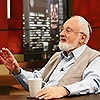 Question: Could we say that the true-false analysis is conscious and sweet-bitter is not?
Question: Could we say that the true-false analysis is conscious and sweet-bitter is not?
Answer: Yes, the sweet-bitter analysis is natural, unconscious, while true-false analysis depends on my development.
Question: Can society impose it on me?
Answer: Thousands of reasons can influence this. Mental analysis can be affected by many means. And it is very difficult to influence feelings because they are corporeal. It is possible, of course, but it is a long process, like a person getting used to some tastes, smells, or sights.
He seems to be entering a different mentality. Let’s say, when we move to another country, we cannot agree with things there but gradually get used to them, and they enter our nature.
We begin to feel: this is pleasant, this is unpleasant; this is sweet, this is bitter, and all this happens because the body is getting used to it. Just like pets get used to what we teach them.
That is, there are two types of analysis in us, and the only question is how we reconcile them with each other. The most important thing is to teach a person to try to develop his mental, rational analysis all the time so that he would explore the sensory one and understand whether something is really good or not. After all, what I do may be sweet but harmful, and it may be bitter but useful.
Comment: Let’s say you tell me now that in order to reveal the Creator I must connect with my friends in the group. Revealing the Creator, I contemplate, is a pleasant sensation for me, but uniting with friends is a bitter one.
My Response: To reveal the Creator for me now is very bitter. It is a feeling of absolute love, absolute connection, absolute concern for others. The Creator is hiding from us precisely because otherwise we would have pushed Him away with our hands and feet and would never have even thought to attach ourselves to Him. Therefore, it is better when He is hidden.
[277412]
From KabTV’s “Spiritual States” 4/22/19
Related Material:
Bittersweet—Natural Analysis
Calibrating The Brain To The Truth
Calibrating The Heart of Sweetness — Bitterness
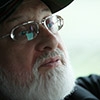 Comment: Renowned physicist Richard Feynman said, “What I cannot create, I do not understand.” As if saying, we are in captivity of our own feelings; we look inside ourselves and not outside.
Comment: Renowned physicist Richard Feynman said, “What I cannot create, I do not understand.” As if saying, we are in captivity of our own feelings; we look inside ourselves and not outside.
My Response: That is how we were created. This is the one-sided perception of the world we were born with. There is nothing we can do about it.
However, as a result of our evolution, especially in recent times, we begin to see how limited our perception of the world is and that we must get out of it. And we must come out into a completely different space.
Even Einstein was limited in his perception of the world.
[280377]
From KabTV’s “Meetings with Kabbalah” 1/3/19
Related Material:
Two Channels For Perceiving Reality
Are We Awake or Still Asleep?
Subtleties Of The Perception Of The World